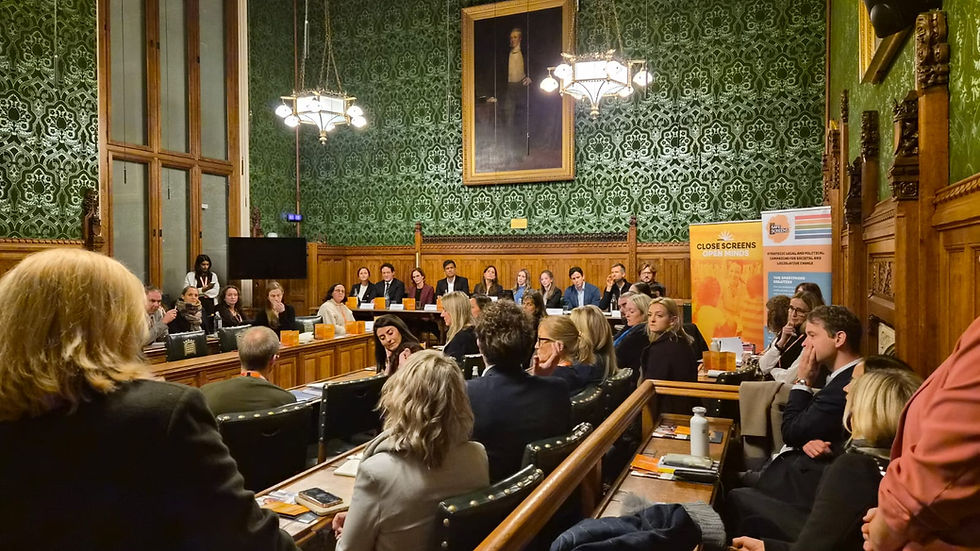Towards a national EdTech regulatory authority (ETRA)
- velislava777
- Oct 29, 2021
- 3 min read
Updated: Mar 23, 2022

EDDS envisions a dedicated regulatory body that should be set up to oversee education technology (edtech) operators whose role in education continues to grow. Following extensive research on how other more mature markets (healthcare, agriculture, food, pharmaceuticals, and gaming) are regulated, while also continuing to innovate and grow, we propose ETRA, a national EdTech Regulatory Authority, to regulate national edtech sectors and prioritise children and young people's digital and human rights.
ETRA should aim to regulate most forms of edtech – platforms, applications, systems, cloud-based operators, infrastructures servicing edtech applications including B2C and B2B services. It should respect local cultural, legislative, educational, and other context-specific rules, terms, conditions, and situations, individuals – and in particular children and their digital and human rights.
ETRA should be established to regulate the various sectors of the edtech industry by ensuring fairness, transparency and accountability to students (children and young people), educators, continuing and life-long learners using edtech products and services, by preventing profiling, exclusion, surveillance, sorting, nudging and hyper-nudging, misrepresentation, behavioural control, repurposing, harming and exposing to risks of harms and discrimination and protecting all vulnerable and minor learners, learners with disabilities, disadvantaged and learners with special immigration status and other conditions.
ETRA should aim to look after the integrity of the edtech products and services from pedagogical and curriculum perspective and in general as products that add value to any part of the educational processes.
ETRA will provide and continuously monitor to keep updated a set of legislation, regulations and directives that regulate the edtech industry.
It will ensure that the edtech industry does not impoverish the education sector and therefore monitor the financial operations and profits of the sector while ensuring that the industry generates part revenue that is contributed back to the education sector.
ETRA's functions
ETRA will deal with:
Protecting minors and vulnerable learners (early and compulsory years as well as continuing and life-long learners) while promoting responsible use of edtech in a safe educational environment – physical or virtual, in the home or in the school
License and regulate edtech operators and vendors
Guide and cooperate edtech operators at all stages of their application process
Protect educational institutions’ funds; ensure that all fees and charges are fair and justified
Protect students’ data – collection, processing and use
Ensure the integrity of the applications and platforms, devices, content and cloud-based infrastructures via audits and independent testing facilities to ensure their impact on any part of the educational process is justified as claimed
Monitoring of licensee activities to ensure compliance
Safeguarding of student/learner rights, via investigation of complaints concerning the licensees on behalf of the students/learners
Monitoring of activities to keep edtech misuse and abuse of generated data and metadata
ETRA will introduce “a duty of care for edtech providers”. ETRA license holders are expected to work close with educators or specially appointed (in their organisations) education experts who will monitor and ensure that their products and services are in line with the Digital Rights of the Child and student-centred-learning frameworks. Where the edtech product infringes on a student/learner’s digital rights and diminishes personal agency, ETRA will enforce a thorough review of the license conditions and may revoke the license.
ETRA's structure
ETRA will have the following main entities:
Non-executive Board of Directors, responsible for overseeing the strategic development of the Authority and ensuring that the set policy and strategy objectives are achieved. The Board will be responsible for policy development and overall risk management. Headed by an independent Chairman who may or may not be the CEO of ETRA.
CEO, who is responsible for the overall execution and performance of ETRA functions
Executive Management Committee, who are delegated tasks by the CEO and are responsible for major functions of ETRA
Audit Committee, assisting the Board of Directors in ensuring good corporate governance, risk management, oversight of audit/accounting issues and internal controls, while overseeing the accounting and reporting processes and audits
Supervisory Council, which supervises and reviews the regulatory objectives of ETRA, and is responsible for ensuring the integrity, consistency and development of the regulatory functions of ETRA, while providing oversight and guidance in relation to ongoing regulatory issues, strategic regulation and act as an advisory committee to the Authority’s Board and management
Fit and Proper Committee, which assesses and determines whether applicants for an ETRA license are fit and proper persons, from criminal probity aspect, educational and education expertise background, to be granted an edtech license and be authorised to conduct edtech business activities.



Comments